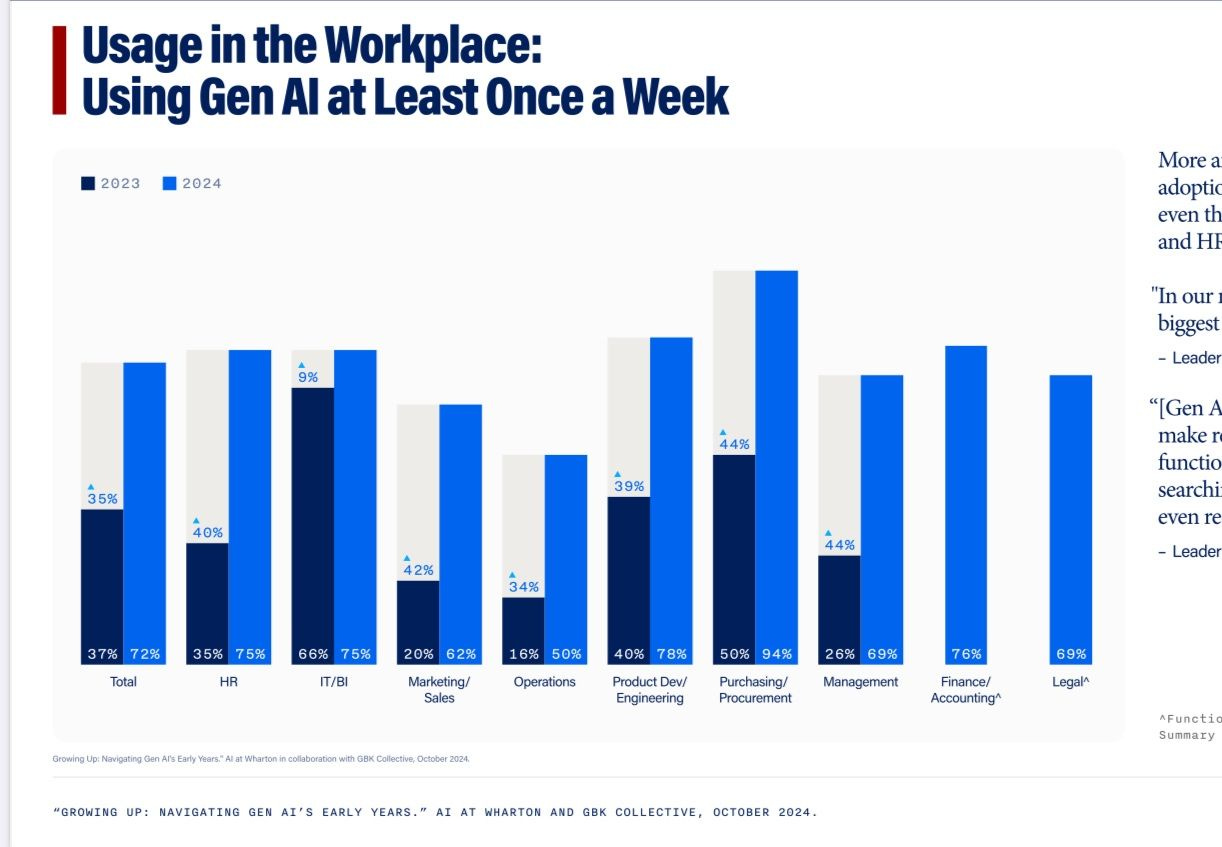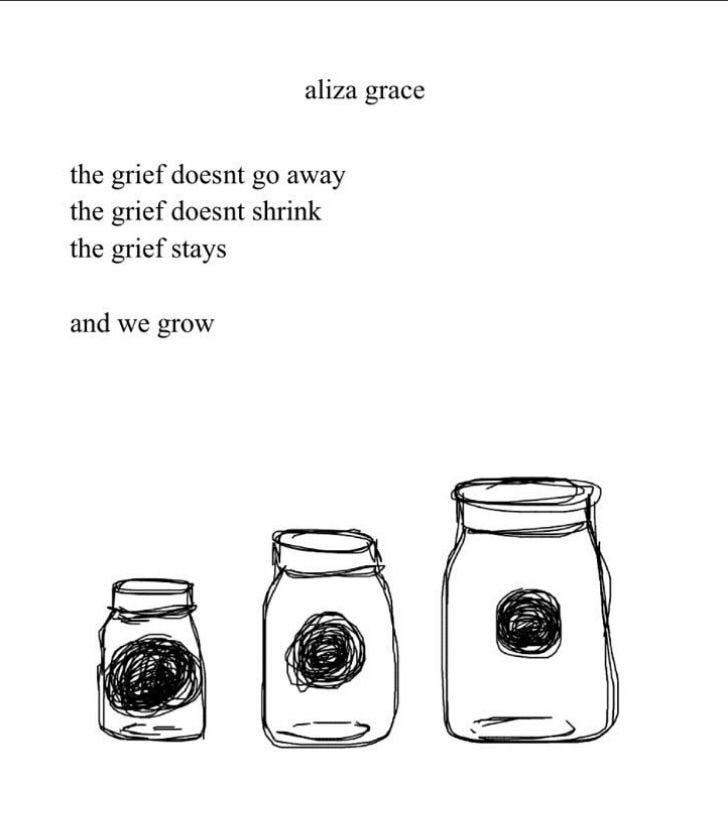#34 My Nightstand - A Time of Crossroads
This week, I will share some insights and reflections inspired by a conference I attended last week, where top-notch speakers shared their thoughts on the world we (and will) live in.
Welcome to “My Nightstand”!
This newsletter plays around the concept of three things that I have on my nightstand when I go to bed: 1) a book, 2) a piece of content that inspired me 3) a quote or a reflection on self-improvement, life or work.
WHAT’S IN THIS EDITION:
1) What I am reading this week…;
2) A Time of Crossroads, a time of unique challenges and opportunities;
3) A question for the reader;
Let’s get into it, and subscribe to stay updated for the next issues and join a growing community of like-minded smart people!
1. What I am reading/listening to this week
From the world-famous podcast “Acquired”, I have listening to the episode dedicated to Meta, a walk-through of the company created by Mark Zuckerberg.
Some interesting insights on GenAI adoption curve shared by
on LinkedIn from a research done by the Wharton University (full study here)
A reflection on grief and closure by
, one of my favorite authors:“Closure is a myth. Grief doesn't evaporate—it waxes and wanes.
The purpose of grief is not to cause pain. It's to keep memories of loved ones alive and remind us to make the most of our time.
Moving forward after loss is not about erasing sorrow. It's about gaining perspective.” (Adam Grant)
2. Reflections on…a Time of Crossroads, a time of unique challenges and opportunities;
Last week I was invited to a great conference called “Crossroads Summit”, a 2-day immersion on the chaos and the opportunities of the world we live in.
The Crossroads Summit brought together an exceptional lineup of global thought leaders, including Peter Zeihan, Jamie Meltz, Neil Howe (creator of the nomenclature “Millennial”), Cathie Wood, Miami Mayor Francis Suarez, and Pascal Bornet, to unpack the most critical challenges and opportunities facing our world today.
It was super inspiring for me to hear so many experts sharing incredible insights on the world we live in, and taking me 10.000 meters above to connect dots and see the big picture on what is actually going on in the world. It was both a moment of reflection and excitement.
Day 1 was all about “Chaos” and the challenges of the world we live in, defining the era we live as the “Fourth Turning”, a theory created by one of the speakers, Neil Howe, with co-author William Strauss, and explained in this book from 1997: “The Fourth Turning: An American Prophecy - What the Cycles of History Tell Us About America's Next Rendezvous with Destiny” (Amazon link)
The Aging Population Crisis:
- Global population is rapidly aging, with birth rates declining in developed countries
- By 2050, one in six people will be over 65, compared to one in eleven in 2019
- Increased life expectancy coupled with lower birth rates creates unprecedented economic pressure
- Potential strain on pension systems, healthcare, and social support structures
- Reduced workforce productivity and increased dependency ratios
The Labor Force Challenges:
- We have shrinking workforce in developed nations, particularly in Europe and Japan;
- We risk potential economic stagnation due to reduced working-age population;
- We need innovative immigration policies and workforce integration;
- It is becoming increasingly important to focus on automation and AI to compensate for labor shortages;
- We might see a potential economic shifts as traditional workforce models become unsustainable.
Geopolitical Tensions:
- Ongoing conflicts are creating global uncertainty due to our interconnected our world is;
- Russia-Ukraine conflict is disrupting global energy and food supply chains and creating risks for Europe;
- The increasing tensions between China and Taiwan are threatening global trade stability and the AI chipset supply chain;
- The middle East conflicts are impacting global oil markets and international relations;
- The rise of authoritarian systems are challenging democratic global order;
- There is potential for economic decoupling between Western and Eastern economic blocs, with BRICS exploring their own currency and crypto increasingly being adopted.
Day 2 was about the “Future” and the great opportunities we have and the unique time of technological convergence we live in.
Technological Revolution Highlights
Technological Convergence Landscape
Many speakers agreed that the pace of innovation and technological change we are living is something that has not happened since the Industrial Revolution in late 1800s;
AI, robotics, crypto and quantum computing are creating exponential innovation potential, converging to create unique opportunities.
Estimated 14 times faster technological advancement compared to previous decades, with medical breakthrough that can be accelerated 10-20x faster than before;
We have potential to solve complex global challenges through integrated technological solutions, leveraging blockchain technology, AI, and robotics, and embracing the Quantum computing revolution;
What are some of those specific technology breakthroughs we might see in the next 5-10 years?
Some of the effects that Artificial Intelligence will have are:
Generative AI is right now transforming multiple industries;
The potential to solve complex scientific and medical challenges with AI is massive, thanks to the faster cycles of innovations and research.
There Estimated 40% productivity increase across multiple sectors
Ethical AI development becoming a critical global priority
The potential for Healthcare innovations is becoming massive:
We are creating personalized, individual medicine through genetic mapping (CRISPR technology is rapidly advancing);
AI-driven diagnostic tools are rapidly increasing early detection rates of incurable illnesses;
Potential to extend human healthspan and improve quality of life with longevity cures;
We are seeing breakthroughs in regenerative medicine and cellular repair technologies.
Quantum Computing has been defined by one of the speakers (André M. König) as the single most important technology people do not know about:
It has the potential to solve previously unsolvable computational problems;
It will create breakthroughs in cryptography, drug discovery, and climate modeling;
It is estimated to be 100 million times faster than current supercomputers;
It has the potential to revolutionize scientific research and technological innovation.
The Human Adaptation Imperative: what are some of the things we can do to embrace the change, adapt and thrive in this world?
It is important to focus on our most human skills and become "Irreplaceable", as Pascal Bornet said in his book and speech:
Focus on Emotional Intelligence:
It creates deep empathy and interpersonal understanding
It provides ability to navigate complex social and professional relationships
It develops leadership skills that transcend technological capabilities
Focus on Creativity and Innovation:
Focus on the ability to generate novel solutions to complex problems
Use a cross-disciplinary thinking and approach to connect dots;
Develop Advanced Communication Skills:
Learn the ability to translate complex ideas across different contexts
Develop skills to foster interdisciplinary collaboration and communication
Have a continuous learning mindset:
Have adaptability and willingness to unlearn outdated skills and learn new ones;
Have a proactive approach to personal and professional development, don’t be scared of new things.
MY TAKEAWAY:
The Crossroads Summit was more than just a conference. It was a comprehensive roadmap for navigating the complex, interconnected challenges of our time. By embracing technological innovation, developing uniquely human skills, and maintaining a global, collaborative perspective, we can transform potential challenges into extraordinary opportunities.
The message was clear: our future depends not on resisting change, but on our ability to adaptively and creatively shape it with the help of technological innovations.
3. QUESTION FOR THE READER:
Are you more scared or excited about the future of the world? What can you do to feel more in control of how you will shape the next 5-10 years of your life?
Closing Thoughts
As always, hope you enjoyed the read and let me know what you think in the comments! It is Thanksgiving week here in the U.S., and I think it is an amazing tradition to dedicate a day to be thankful for who we share our lives with and what we have. What are you thankful for?
And if you like this newsletter, please subscribe and share it with friends!
Stay curious, stay open, be thankful.
Gianluca






